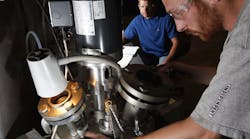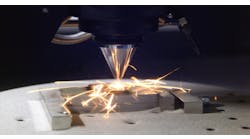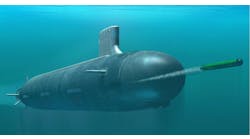Spirit AeroSystems reported it has implemented a reconfigurable tooling for manufacturing complex composite aerostructures. The system uses “re-formable, reusable mandrels” to form integrated structural shapes in composite materials – forms that would not be possible with standard tooling.
"The degree of integration of composite structural components has been limited to date by current tooling methods," explained Bill Smith, acting director of technology development at Spirit. Shapes with complex geometries or “trapped features” are expensive and labor-intensive to produce, and with related low rates of production. Some such shapes cannot be produced at all. The reconfigurable tooling capability that Spirit has licensed from Spintech Ventures LLC changes these assumptions.
Spirit designs and manufactures composite aerostructures for commercial aircraft at 10 locations in the U.S., England, France, Malaysia, and Scotland. Its products include forms for fuselages, pylons, nacelles, and wing components.
In 2005, Spirit Aero began collaborating with Cornerstone Research Group Inc. to refine and commercialize the tooling technology now as Smart Tooling™. CRG established Spintech Ventures in 2010 to commercialize “shape memory polymer technologies,” including Smart Tooling.
The shape memory polymer technology licensed by Spirit -- known as Inflexion™ -- includes enhancements that allow it to produce large, integrated, single-sided reinforced structures.
"Inflexion breaks through this (tooling) barrier by providing tooling that can change states through the layup and cure phases,” Smith explained, “allowing for extraction of the tool in spite of trapping features, which would hinder current tooling methods. This enables, for example, the full integration of skins, stringers, and frames or ribs in one step."
"Smart Tooling's patented technology allows composite manufacturers to significantly reduce some combination of labor, material, and capital cost, while significantly increasing production through-put in the production of composite parts with trapped features and/or complex shapes," according to Craig Jennings, Spintech Ventures president.







